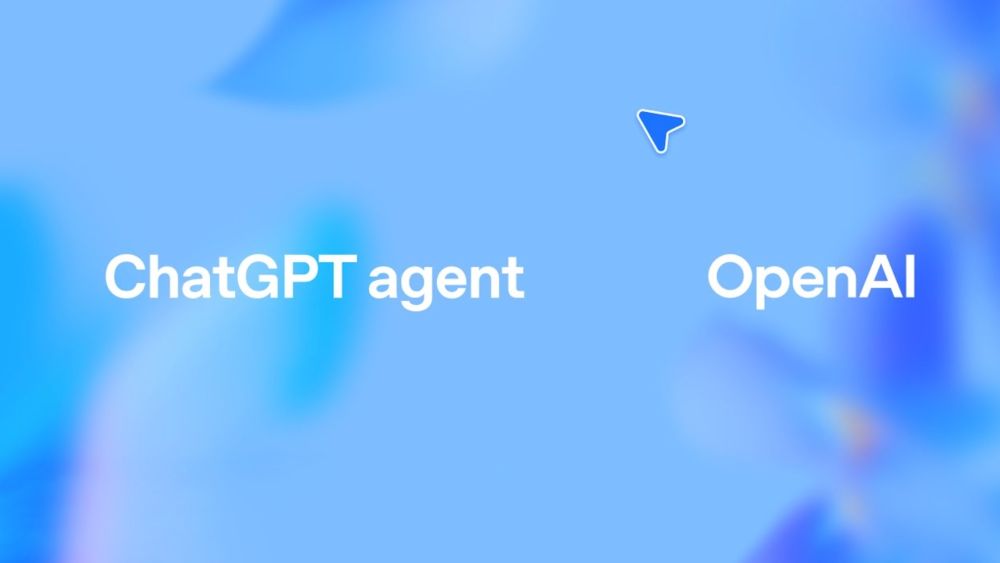OpenAI launches ChatGPT Agent: An AI assistant that can book trips, analyze data, and take action

OpenAI just rolled out its most autonomous AI product yet: ChatGPT Agent. Announced Thursday by CEO Sam Altman in a post on X, the new system doesn’t just help you think through a task—it actually does the task for you. It can book flights, analyze spreadsheets, pick out clothes, and prep work presentations, all on its own virtual computer.
Altman called it “a chance to try the future,” and within hours of launch, it’s already being seen as a major leap forward for consumer AI. Think of it as ChatGPT with a memory, a plan, and the ability to act.
ChatGPT Agent Is Here: OpenAI’s Most Autonomous AI Yet

This isn’t about chatbots replying with prepackaged answers anymore. The Agent runs on its own virtual computer and can move through complicated tasks without human micromanagement. During the demo, OpenAI showed it pulling off an entire set of errands for a user prepping for a wedding: picking an outfit, booking flights, reserving a hotel, and even selecting a thoughtful gift.
“Agent represents a new level of capability for AI systems and can accomplish some remarkable, complex tasks for you using its own computer. It combines the spirit of Deep Research and Operator, but is more powerful than that may sound—it can think for a long time, use some tools, think some more, take some actions, think some more, etc. For example, we showed a demo in our launch of preparing for a friend’s wedding: buying an outfit, booking travel, choosing a gift, etc. We also showed an example of analyzing data and creating a presentation for work,” Altman wrote on X.
The Agent wasn’t just clicking around—it was reasoning through each step, pausing to think between actions, using the internet, and switching tools mid-task. “It can think for a long time, use some tools, think some more, take some actions, think some more,” OpenAI’s founder said during the announcement.
Another example had it crunching numbers, analyzing data, and building a polished presentation. The move positions OpenAI squarely in the productivity software race, nudging up against the likes of Excel and PowerPoint—except instead of you doing the work, the Agent handles it.
That said, OpenAI isn’t pretending this is without risk. The company has built out what it calls a “comprehensive safety framework” to keep things from going sideways. The release comes with plenty of safeguards, and OpenAI has been upfront about the need for careful rollout, especially with a tool that can act on users’ behalf online.
This new product combines pieces from OpenAI’s previous experiments, like Operator and Deep Research, folding them into a more coherent, action-oriented system. It’s still early days, but ChatGPT Agent might be the clearest signal yet that we’re moving into an AI era where software doesn’t just assist—it acts.
Below is Altman’s full post on X.
“Today we launched a new product called ChatGPT Agent.
Agent represents a new level of capability for AI systems and can accomplish some remarkable, complex tasks for you using its own computer. It combines the spirit of Deep Research and Operator, but is more powerful than that may sound—it can think for a long time, use some tools, think some more, take some actions, think some more, etc. For example, we showed a demo in our launch of preparing for a friend’s wedding: buying an outfit, booking travel, choosing a gift, etc. We also showed an example of analyzing data and creating a presentation for work.
Although the utility is significant, so are the potential risks.
We have built a lot of safeguards and warnings into it, and broader mitigations than we’ve ever developed before from robust training to system safeguards to user controls, but we can’t anticipate everything. In the spirit of iterative deployment, we are going to warn users heavily and give users freedom to take actions carefully if they want to.
I would explain this to my own family as cutting edge and experimental; a chance to try the future, but not something I’d yet use for high-stakes uses or with a lot of personal information until we have a chance to study and improve it in the wild.
We don’t know exactly what the impacts are going to be, but bad actors may try to “trick” users’ AI agents into giving private information they shouldn’t and take actions they shouldn’t, in ways we can’t predict. We recommend giving agents the minimum access required to complete a task to reduce privacy and security risks.
For example, I can give Agent access to my calendar to find a time that works for a group dinner. But I don’t need to give it any access if I’m just asking it to buy me some clothes.
There is more risk in tasks like “Look at my emails that came in overnight and do whatever you need to do to address them, don’t ask any follow up questions”. This could lead to untrusted content from a malicious email tricking the model into leaking your data.
We think it’s important to begin learning from contact with reality, and that people adopt these tools carefully and slowly as we better quantify and mitigate the potential risks involved. As with other new levels of capability, society, the technology, and the risk mitigation strategy will need to co-evolve.”
Here’s the YouTube video of the launch.




